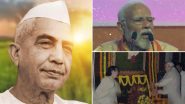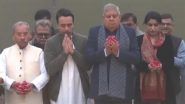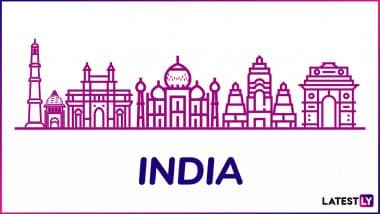Mumbai, Jun 27 (PTI) The Bombay High Court upheld the constitutional validity of reservation for the Maratha community in education and government jobs in Maharashtra on Thursday, but directed that it be slashed from the present 16 per cent to 12 per cent and 13 per cent respectively.
A division bench of justices Ranjit More and Bharati Dangre, in a 487-page judgment, said the 50-per cent cap on total reservations imposed by the Supreme Court could be exceeded in exceptional circumstances.
It accepted the Maharashtra government's argument that the Maratha community was socially and educationally backward, and the government was duty-bound to take steps for its progress.
While the reservation was valid, its quantum -- 16 per cent -- was not justifiable, the judges held. It should be reduced from the present 16 per cent to 12 per cent and 13 per cent as recommended by the State Backward Classes Commission, it said.
The commission, in its report, had recommended a 12-per cent quota in education and a 13-per cent quota in jobs for Marathas.
The court was hearing a bunch of petitions challenging the state government's decision to grant a 16-per cent reservation to Marathas.
On November 30, 2018, the Maharashtra legislature passed a bill granting the 16-per cent reservation to the Marathas.
The community, which accounts for roughly a third of the state's population, is politically dominant.
"The Maratha community, post the Constitution of India coming into force, has never enjoyed any concession in the form of reservation," the court noted. Its economic and educational condition was "highly deplorable", it added.
The government had the "legislative competence to create a separate category of Socially and Educationally Backward Class (SEBC) and grant reservation", the court held.
"...when classification is made by creating a separate class of SEBC and inclusion of the Maratha community in it in order to attain social justice and advancement of the community, we do not find the classification to be unreasonable," it said.
The legislative competence of the state was not affected by the amendment to Article 342(a) of the Constitution, it added.
According to the 102nd amendment to the Constitution, reservation can be granted only if a particular community is named in the list prepared by the President.
The report submitted by the State Backward Classes Commission was based on quantifiable and contemporaneous data and was correct in classifying the Maratha community as socially and educationally backward, the bench said.
It said it was aware that the Supreme Court had said reservations should not exceed 50 per cent.
"However, in exceptional circumstances, the 50 per cent cap can be exceeded, if the same is based on quantifiable and contemporaneous data," the court held.
Backwardness was a relative term and must be judged by the general level of advancement of the entire population of the state, it said.
"...therefore, determination of backwardness is best left to the respective state," the judges observed.
"Once we have accepted that the Maratha community is a backward class, it is imperative on the part of the state government to uplift the community and if the state does so and exceeds the limit of 50 per cent, we feel that this is an extraordinary situation," the judgment read.
"The wrong done to the community can only be righted by classifying them as a distinct class from the OBCs and ensuring them a separate quota so that the OBCs with the quota of 19 per cent, who are themselves struggling, do not get disturbed," the court said.
After the judgment was delivered, the state government told the court that it had already granted admissions to post-graduate medical courses under the 16-per cent quota.
Government counsel V A Thorat sought permission to let the percentage remain at 16 for these courses this year.
The bench asked the government to file a separate application for this.
In the judgment, the court also observed that "successive governments have sought to redress this inequity (caused by the caste system) through a policy of affirmative action".
"The emergent situation makes us think whether we have lost the battle of annihilation of castes as proposed by our founding fathers," it said.
The petitioners against the quota had challenged the creation of the Socially and Educationally Backward Class for the Marathas and cited the 50-per cent cap imposed by the Supreme Court.
(This is an unedited and auto-generated story from Syndicated News feed, LatestLY Staff may not have modified or edited the content body)













 Quickly
Quickly
















